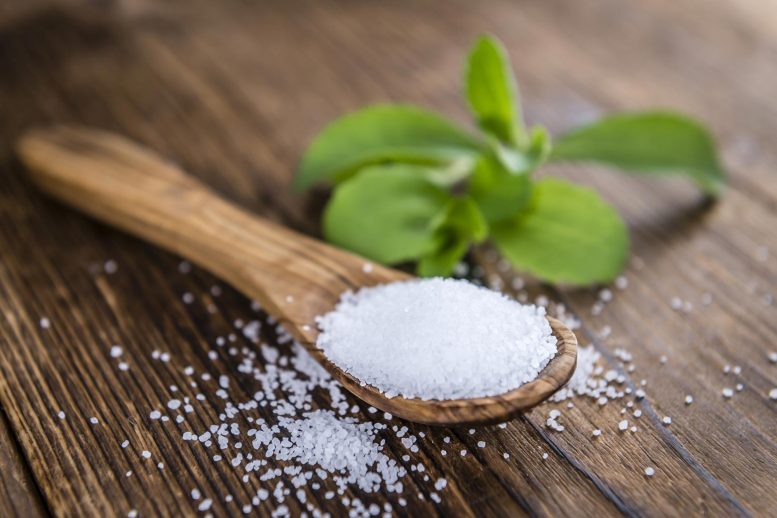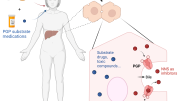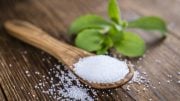
Stevia-based sweeteners are natural sweeteners extracted from the stevia plant, known for their high sweetness levels with little to no calories.
New research from the University of Surrey suggests that natural sweeteners derived from stevia can offer the same level of sweetness as sugar while producing as little as 10% of the greenhouse gas emissions.
A Life Cycle Assessment carried out by researchers on steviol glycosides extracted from stevia revealed that the production of this sweetener has a lower environmental impact in various areas when compared to sugar. The assessment highlighted that the use of stevia could potentially reduce land use and water consumption, while still providing the same level of sweetness as sugar.
Many non-nutritive sweeteners (NNS), like steviol glycosides, can reproduce the taste of sugar, but without the associated health risks, such as tooth decay, obesity, or diabetes. They can do this because they are many times sweeter than sugar. For example, 4g of steviol glycosides provides the sweetness equivalent of 1,000g sugar, because it is perceived to be 250 times sweeter.
Dr. James Suckling, the lead author of the study working in the University of Surrey’s Centre for Environment and Sustainability, said: “The use of steviol glycosides and similar natural products could be sweet news for the health of our planet. However, our study readily admits that much more work needs to be done to understand the health impacts of steviol glycosides and other non-nutritive sweeteners when consumed as part of a wider diet.”
Reference: “Environmental life cycle assessment of production of the high intensity sweetener steviol glycosides from Stevia rebaudiana leaf grown in Europe: The SWEET project” by J. Suckling, S. Morse, R. Murphy, S. Astley, J. C. G. Halford, J. A. Harrold, A. Le-Bail, E. Koukouna, H. Musinovic, J. Perret, A. Raben, M. Roe, J. Scholten, C. Scott, C. Stamatis and C. Westbroek, 14 January 2023, The International Journal of Life Cycle Assessment.
DOI: 10.1007/s11367-022-02127-9








“4g of steviol glycosides provides the sweetness equivalent of 1,000g sugar, because it is perceived to be 250 times sweeter.”
Why not just say, “1g of steviol glycosides provides the sweetness equivalent of 250g sugar.”?
Monk Fruit Sweetener is far better in every way + it has actual health benefits that outweigh all other sweeteners !!!
Total nonsense. Anyone that has ever used Stevia knows that it cannot substitute for sugar. Most importantly, it does not dissolve in fat. That’s why there is no good stevia-only chocolate – they must add sugar alcohols. I am not surprised the “scientists” spew out gibberish, yet again. Maybe learn something about critical thinking, logic, and the scientific method before doing “studies”?
I believe that Stevia is dangerous too. The taste is off, and you just don’t feel right after using it.
It’s probably dangerous
Seems there are side affects to everything we eat
I like my pizza and Haagen Daz!
This report, is a little far behind in time. I’ve been using Stevia and monk fruit for almost 10 years now. Not only that, stevia is a sweetner that’s been used in South America by the indigenous for hundreds of years. I think they had the right idea, from the start 😊
What about these recent reports about artificial sweeteners causing heart attacks or strokes? Reducing added sugar (cut back on unhealthy sweets) seems to be the lesser of two evils. I only want sugar in my coffee cup, not 24/7.
They have been dissing Stevia and monk fruit sweetener brands as the cause for heart attack and strokes lately. Hey they have to blame something for all the “clot shot” induced damage and death. I’ve read a variety of things they have tried to blame…now this. Insanity!
Of course the anti-VAX right-wing conspiracy nut cases jump on the story and turn it into another conspiracy theory. Stevia has been safely used for centuries by indigenous people. Just make sure it’s pure and not blended with other additives that carry health risks. The COVID-19 vaccine is safe compared to running around unvaccinated and catching Covid. Ask anyone who’s lost a family member or friend, not to mention all the people that survived it, but have a long haul. Get your damn vaccination!
I can barely taste Stevia. I have to dump a crap ton of it into anything I want to taste remotely sweet. Allulose, monkfruit and inositol are way more effective.
To me, stevia tastes terrible, as does cilantro. Some of us just have different genes. Monkfruit is an okay substitute but I mostly try to avoid sweets.
Let’s face it, there’s no good substitute for sugar. All of the alternatives have their own side effects that are as bad and some worse than plain sugar, the answer is to try to use sugar in moderation if you can.
Yeah, mind what your monkfruit is bulked up with. If you use only 4 g stevia in a triple cookie recipe, you may need 996 g fiber and other fillers. Maybe you draw on banana peel for flour so it has to be… soluble protein and flavonoids in micelles?
Stevia is a natural contraceptive! It has been proven to reduce fertility in female rats even after it has been not used for some time after ! … This study is just pushing the depopulation agenda of the elites !
“Dr. James Suckling, the lead author of the study working in the University of Surrey’s Centre for Environment and Sustainability” Code for a vested interest in keeping his funding on the “save the planet” gravy train.
Stevia tastes absolutely revolting as doe all artificial “sweeteners”
The only one that comes close to sugar is xylitol which has proven health and dental benefits, but cannot be patented, so no big bonanzas.One only needs to look at the efforts to demonise hydroxychloroquine and Ivermectin as “misinformation” for treating covid and other viruses. Scientists defunded, destroyed, censored while big-pharma made billions peddling untested mRNA. Worse, now that the money has been made and the “misinformation” censors have eased off, it turns out that these “repurposed” drugs are extremely effective.
It’s the same with the sweetener Libby and sugar tax addicts. Hang the damage, look at the profits, the funding and the media complicity. I avoid it all.